Calendar and thematic planning in the senior group the month of May
PLANNING EDUCATIONAL WORK FOR APRIL 2022
1 week (from 04/03/17 to 04/07/17) Topic: “Victory Day”
Target:
Carry out patriotic education. Foster love for the Motherland. Formation of ideas about the Great Patriotic War, war heroes. Form ideas about the holiday dedicated to Victory Day.
Final event: festive concert “This Victory Day”,
Responsible
: educators, music supervisor.
Week 2 (from 04/10/17 to 04/14/17) Topic: “Insects”
Target
: introduce children to the diverse world of insects; develop attention, memory, imagination; cultivate interest in the diversity of the surrounding world, the desire to preserve its diversity
Week 3 (from 04/17/17 to 04/21/17) Topic: “Flowers”
Target:
To consolidate children's knowledge about seasonal changes in nature that occur in the spring, to develop logical thinking and creative storytelling skills.
Week 4 (04/24/17 to 04/28/17) Topic: “Summer will come to us soon”
Target:
To form in children generalized ideas about summer as a season. Introduce summer sports.
Final event: festive event “Hello, Summer”!
Responsible for the final event: teachers, music director.
Group: senior “A” Cherry
| Day of the week | Mode | Integration of educational areas | Joint activities of adults and children, taking into account the integration of educational areas | Creating conditions for joint activities | Working with parents | ||
| Group, subgroup | Individual | Educational | |||||
| 1 | 2 | 3 | 4 | 5 | 6 | 7 | 8 |
| MONDAY (May 2017) | Morning | Cognitive development Social and communicative development Artistic and aesthetic Physical development Speech development | Morning exercises. What kind of military are there, literary composition “Turning Through the Pages of History.” | Cognitive and research activities: The Great Patriotic War. War heroes: children and adults. | Situational conversation “What is heroism?” Continue to familiarize yourself with the rules of duty in the group. | Independent activity of children in activity centers. drawing “War through the eyes of children.” | Talk with parents about the well-being of their children. Individual conversations and consultations at the request of parents |
| GCD | Cognitive development | COGNITION :1 “What are insects?” Volchkova-Ecology p.112 -05.15.17 2. “The Earth is our common home” Volchkova-Ecology p.121 – 05.22.17 3. “What is summer?” (see internet) – 05.29.17 | |||||
| Artistic and aesthetic | Music (as planned by the music director) | ||||||
| Walk | Cognitive development | Weather observation Objectives: to form the idea that changes in nature in spring are associated with the rotation of the Earth around the Sun Outdoor games "Get to the ball." S/r game "Gardeners" | Individual work Development of movements. Goal: to train in running along a narrow path, between lines with acceleration and deceleration of the pace with Nastya, Anya A., Kostya. | Situational conversation “You need to know how to dress yourself.” Fix the sequence of dressing and undressing. | Independent activity during a walk. Games with external material. Labor activity Cleaning up trash on site. Goal: to cultivate a desire to work. | ||
Summary of educational lesson for senior preschool age “Victory Day”
Lesson for Victory Day on May 9 for children in the senior group of kindergarten (5-6 years old)
Description Dear colleagues, I bring to your attention a summary of an educational lesson dedicated to Victory Day. This material may be useful for preschool teachers and is intended for children of older preschool age. Goal: To develop patriotic feelings among older preschoolers. Objectives: Educational: • Expand children's ideas and knowledge about the Great Patriotic War, Victory Day; • Expand children's horizons and ability to empathize with other people; • Encourage respect for the heroism of our soldiers. Developmental: • To develop in children imagination, observation, curiosity, the desire to learn more new, useful, interesting things; • Development of memory, attention, speech, thinking. Educational: • To cultivate a sense of patriotism, love for one’s Motherland, respect for WWII veterans, a desire to take care of them; • Fostering tolerance. Integration of educational areas: socio-communicative development; cognitive development; speech development; physical development. Types of children's activities: play; educational; productive; social - communicative; motor. Bilingual component: Defender, Motherland, Fatherland, warriors, raid, bombs, bomb strike, banners, veterans, partisans, memorials, honor the memory. Preliminary work: Examination of photo albums “Battle of Stalingrad”, “Capture of Berlin”, illustrations about the Great Patriotic War, examination of monuments to fallen heroes. Conversations about soldiers, learning poems, songs and listening to music about the Great Patriotic War. Meeting with veterans - participants of the Second World War. Equipment: Story pictures, postcards depicting monuments, memorials dedicated to the heroes of the Great Patriotic War, a set of demonstration material “Victory Day”, Audio recordings of musical works about the war, a song by D. Tukhmanov to the verses of V. Kharitonov - “Victory Day”, story by L .Kassilya “No one knows, but everyone remembers.” Methods and techniques: Verbal method.
Visual method. Game method. Progress of GCD
1. Organizational moment. Introductory word from the teacher. Educator (reads a poem) We have a lot of holidays, There are a lot of good holidays, But I repeat every time, That this day is the beginning of everything, What without it, what without it And the world would not know the happiness of the world And there would be nothing If there had been no Victory ! 2. Main part. Introduction to the topic. Conversation about Victory Day. Educator: Guys, who can tell me what holiday we celebrate on May 9?
Educator: That’s right, why is it called “Victory Day”? Well done! And now I will tell you how the war began. The song “Holy War” plays (music by A. Alexandrov, lyrics by Lebedev-Kumach)
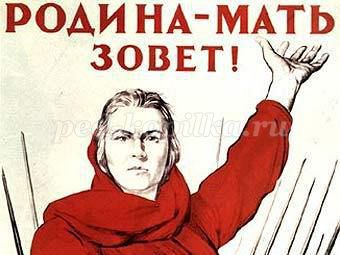
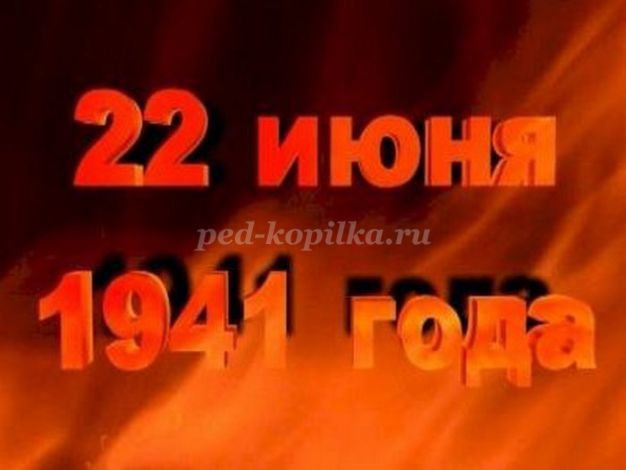
Their main leader, Hitler, gathered his army, armed it with tanks, planes, machine guns and attacked our country.
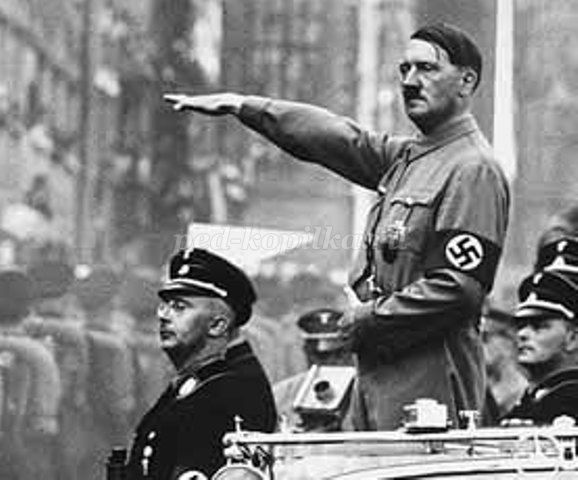
The Nazis wanted to make our people slaves. They wanted to capture Moscow, the capital of our Motherland.
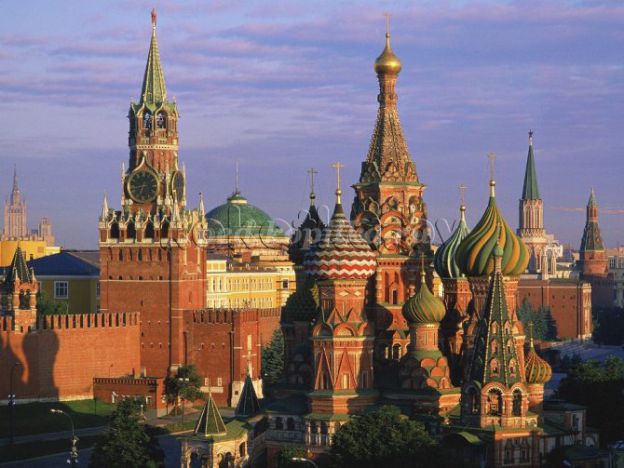
The entire people stood up to defend the country. This is how the Great Patriotic War began.
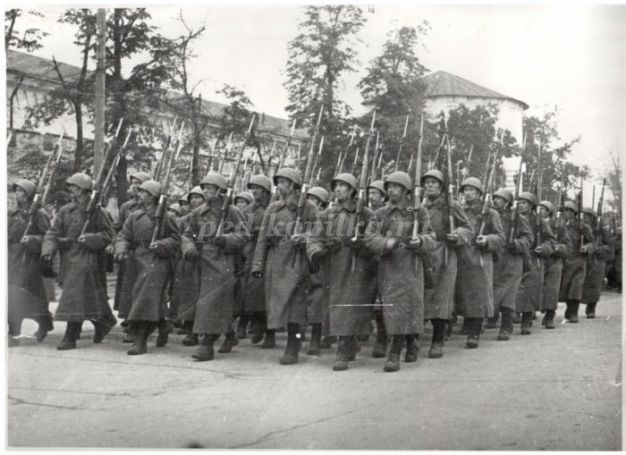
Why is it called that? Because the entire people, young and old, stood up to defend their Fatherland, their Motherland. There were difficult battles, many people died, but the enemy did not get into Moscow.
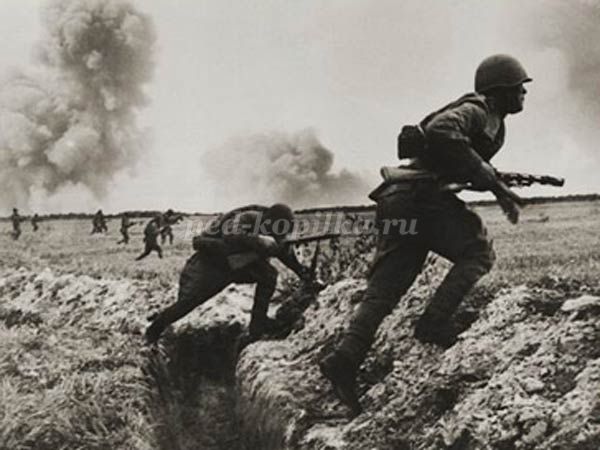
The Great Patriotic War lasted 1418 days.
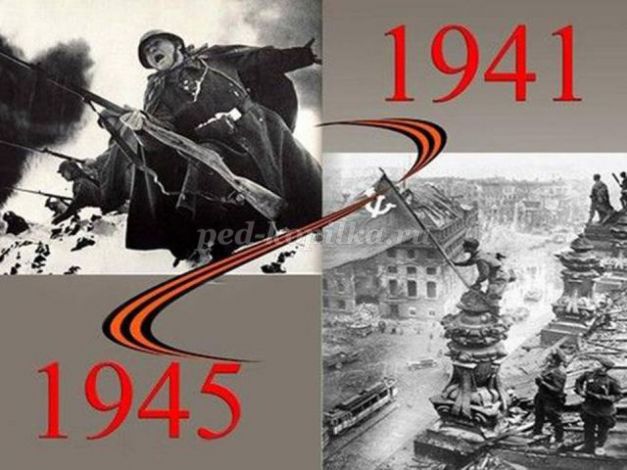
The fascist barbarians destroyed and burned the cities, villages, and schools of our Motherland. Fascist planes bombed cities and ports, airfields and railway stations, bombs rained down on pioneer camps, kindergartens, hospitals and residential buildings.
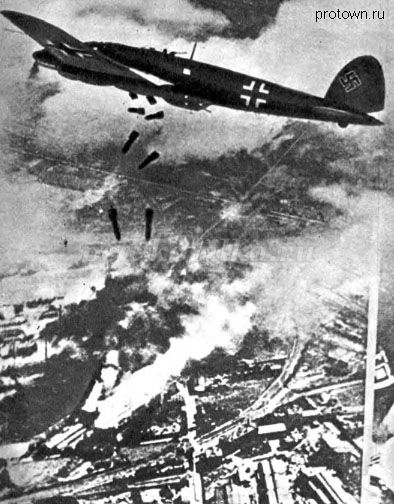
The enemy spared neither women, nor the elderly, nor children. A lot of people died in this terrible war.
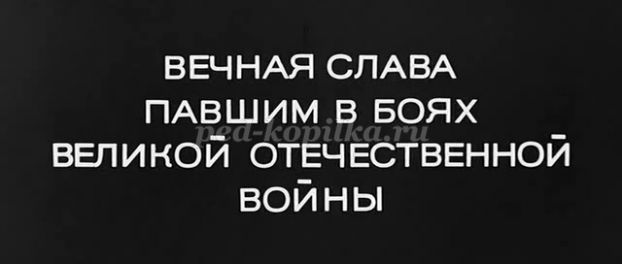
Our soldiers fought not only at the front. Civilians behind enemy lines tried to inflict as much damage as possible on the invaders. They set fire to warehouses with enemy military equipment and attacked their headquarters to find out information about the enemy’s actions. Such people were called partisans.
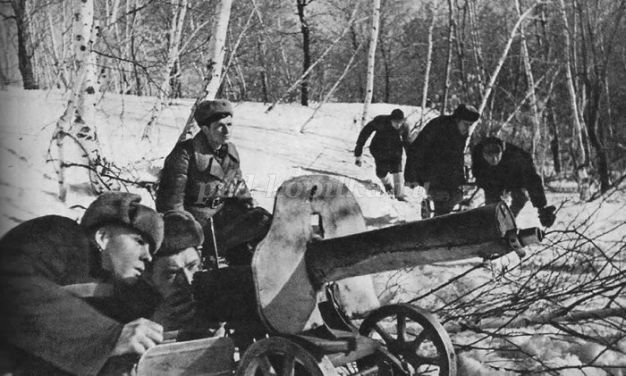
And finally the long-awaited day came when our army cleared the land of fascists and captured the main city of Germany, Berlin. (Showing the illustration “The Capture of Berlin”)
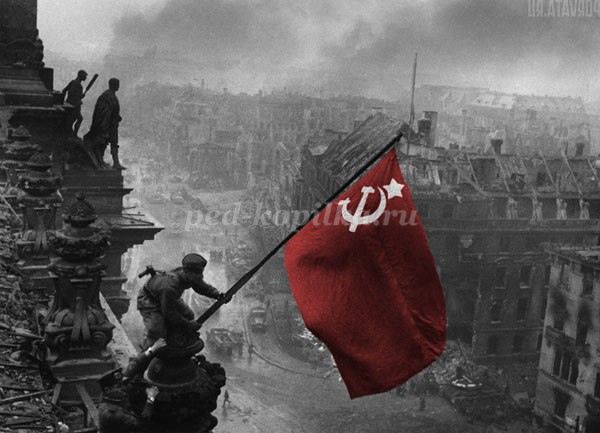
On May 9, 1945 the war ended with our victory
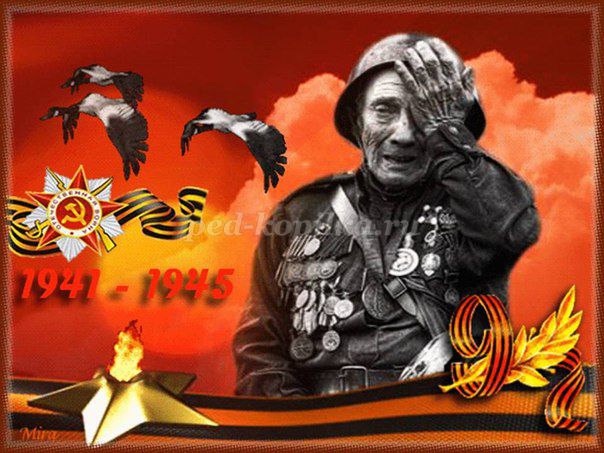
Victory Day is the most solemn, sad and joyful holiday for our people; it is dedicated to the Great Victory over fascism. We remember with gratitude our glorious warrior-defenders who defended the world in a fierce battle.
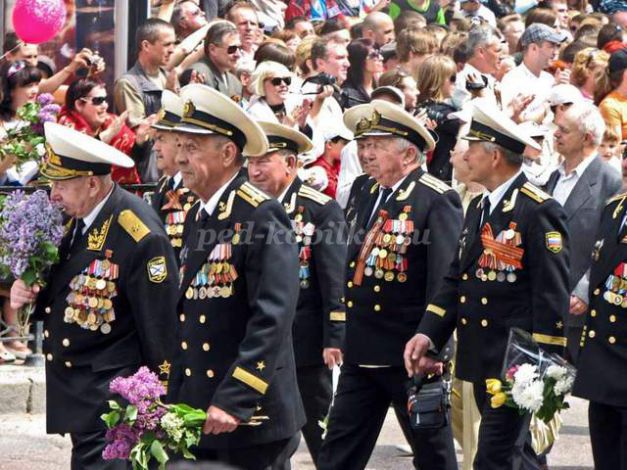
We owe it to soldiers, sailors, lieutenants, captains, and generals that we now live under a clear, peaceful sky. Eternal glory to them!
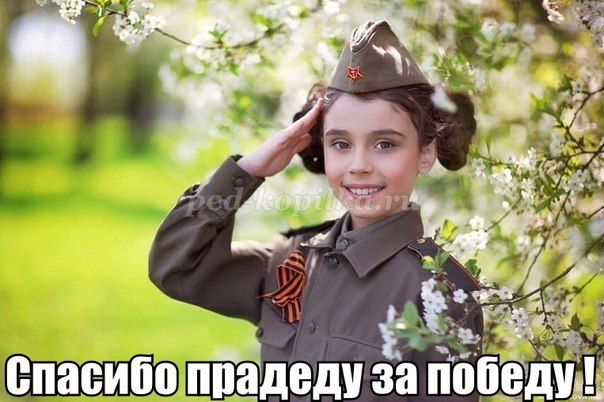
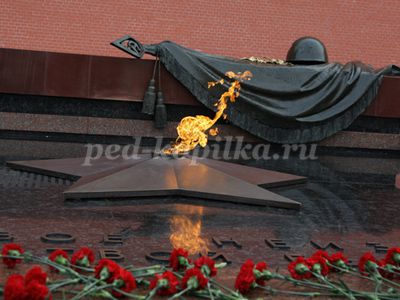
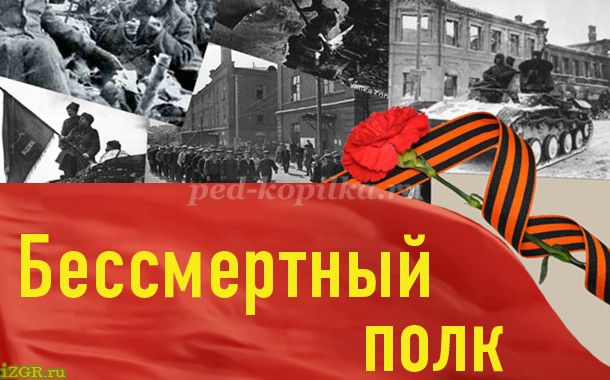
People do not forget their heroes. Songs are sung about them, poems are dedicated to them. Many monuments were erected in their honor. One of them is located near the Kremlin wall. This is the “Eternal Flame” - a monument to all soldiers who fought the Nazis. The eternal flame is a constantly burning fire, symbolizing the eternal memory of the exploits of our brave soldiers.
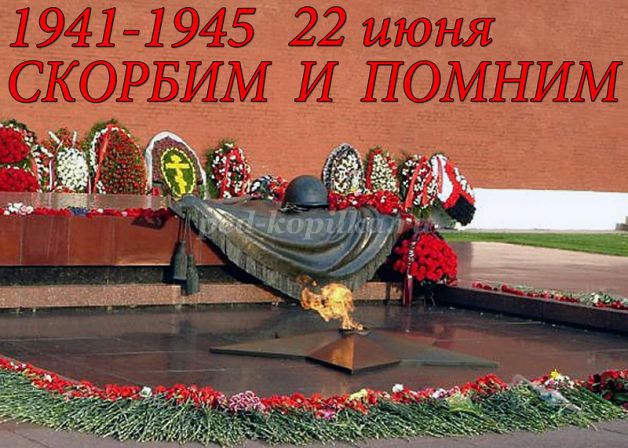
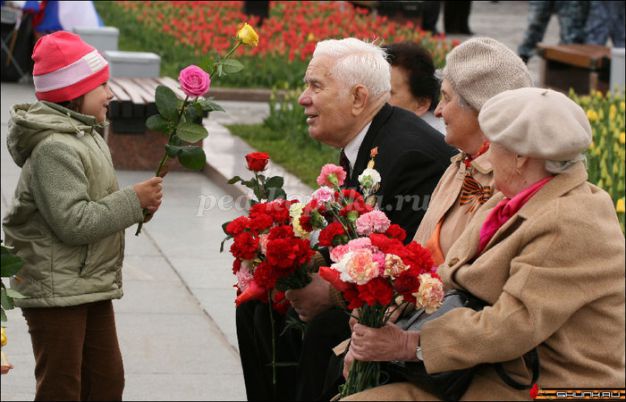
We recommend watching:
Scenario of a thematic lesson on May 9 in the senior group Notes on fine arts in the senior group “Festive fireworks” Notes of a lesson in the senior preparatory group on the topic: May 9 - Victory Day Notes of a conversation in the senior group dedicated to the liberation of the city of Surovikino from the Nazi invaders
Similar articles:
Lightning in kindergarten on May 9th. Scenario for senior group
Lesson notes for the senior group. Battle of Stalingrad
Gymnastics progress:
Calm music sounds. Gradual awakening.
Educator: Better word: We woke up, smiled, and stretched harder.
Guys, wake up, throw back the blanket, move the pillow aside, and start doing gymnastics .
Complex No. 5. First, second weeks.
Gymnastics in bed.
1. "Sipping"
I. p. - lying on your back, arms along the body.
Alternately raise your right (left)
hand up, stretch, lower; do the same alternately with the left hand, right and left foot. Then raise your arms and legs at the same time, stretch, lower
2. I. p.: lying on your back, arms along the body. Bend your knees, pull your legs to your chest, clasp your knees with your hands, return to i. P.
3. I. p.: lying on your back, hands behind your head, legs bent at the knees. Tilt your knees to the left, in and out. p., bend the knees to the right, in and. P.
4."Let's relax"
. I. p. - lying on your stomach with support on your elbows, gently supporting your chin with your palms. Alternately bend and straighten your knees. Repeat 3-4 times.
Acupressure: Picture No. 5 and No. 6
Walking barefoot on a ribbed board.
• Walking on toes (chanterelles)
• Walking on heels
• On the outside of the feet (cubs)
• Raising your legs high (moose)
1. "Wash"
hands, actively rub your palms until you feel intense heat.
2. Pull out each finger and press on it.
3. Rub the phalanges of the fingers of one hand over the nails of the other hand, as if on a washboard.
4. Tinder with a washcloth
the entire arm to the shoulder, pressing firmly on the muscles of the shoulder and forearm;
“Wash off the soap with water
,” hold one hand up, then palm down and
. ”
Prevention of postural disorders, breathing exercises .
I. p. - standing between the beds, back straight in all exercises.
Here's a dragonfly (stand on your toes, arms up to your sides)
Like pea eyes. (join the index and thumb of both hands in a circle, put them to the eyes ( “glasses”
, turns to the sides.
And she herself, like a helicopter, (rotating her forearms back and forth with a half-turn
Left, right, back, forward. (left to right; tilts to the sides)
Abstract: Regular moments in kindergarten: Getting children up after sleep and hardening procedures.
Maia. Mayan. Bakulina. Bakulina.
Abstract: Regular moments in kindergarten: Getting children up after sleep and hardening procedures.
Abstract: Regular moments in kindergarten: Getting children up after sleep and hardening procedures.
The correct organization of routine moments is of great importance for the health and successful development of the child. Regular moments take up most of the time that the baby spends in kindergarten. They should not be seen as simply providing for the child's physiological needs. All procedures and how they are carried out form an important part of the teaching process.
Regime moments include:
1. Reception of children.
2. Morning exercises.
3. Preparing for breakfast, breakfast.
4. Preparation for direct educational activities.
5. Preparing for 1st walk, walk.
6. Preparing for lunch, lunch.
7. Organization of children's sleep.
8. Organization of raising children and hardening procedures.
9. Preparing for afternoon tea, afternoon tea.
10. Preparing for walk 2, walk.
11. Preparing for dinner, dinner.
When organizing routine moments, the teacher must... Create a friendly, collaborative atmosphere. You should take into account the individual characteristics of each child: do not rush a slow child, do not offer actions that are too difficult for the child, do not do for him what he can do himself. In this report we will discuss 2 regime points.
Organization of raising children and hardening procedures.
The rise is carried out gradually, as the children awaken, while still in their cribs, awakening exercises are carried out.
Progress of the regime moment.
Quiet music is turned on, to which the children gradually wake up.
